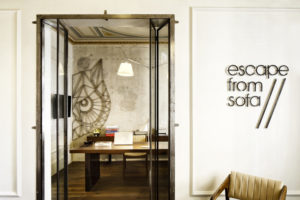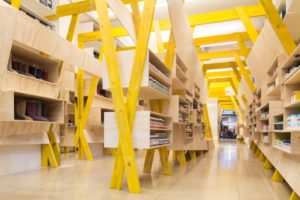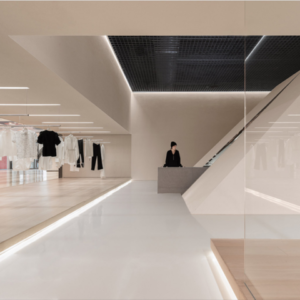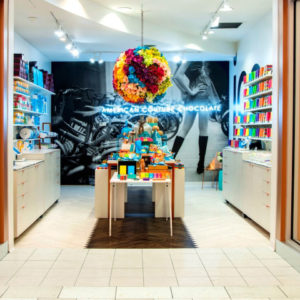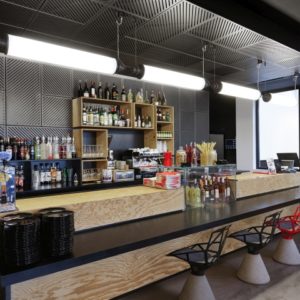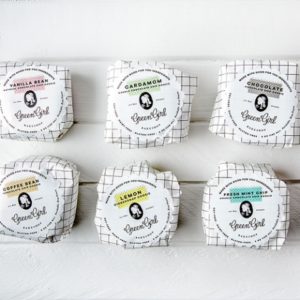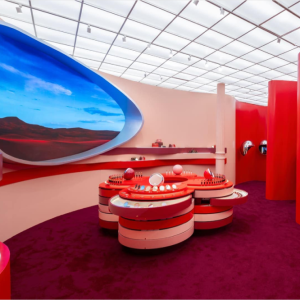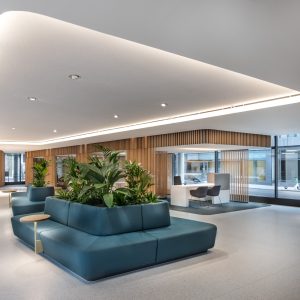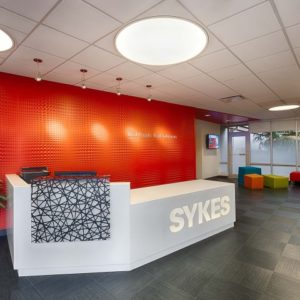
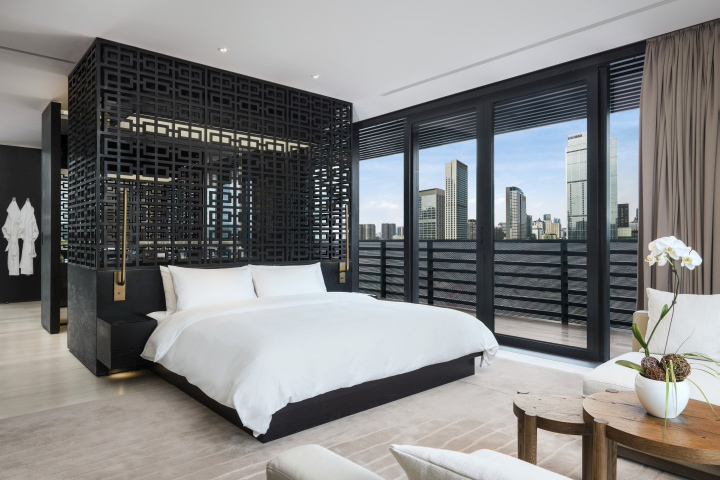

Located in the heart of Chengdu, one of China’s key centres of finance and commerce, is The Temple House, a highly-anticipated, historically-rich hotel, has opened in July 2015. Designed by Make Architects for Swire Hotels, The Temple House is the third hotel in Swire’s flourishing House Collective portfolio, following The Upper House in Hong Kong and The Opposite House in Beijing.
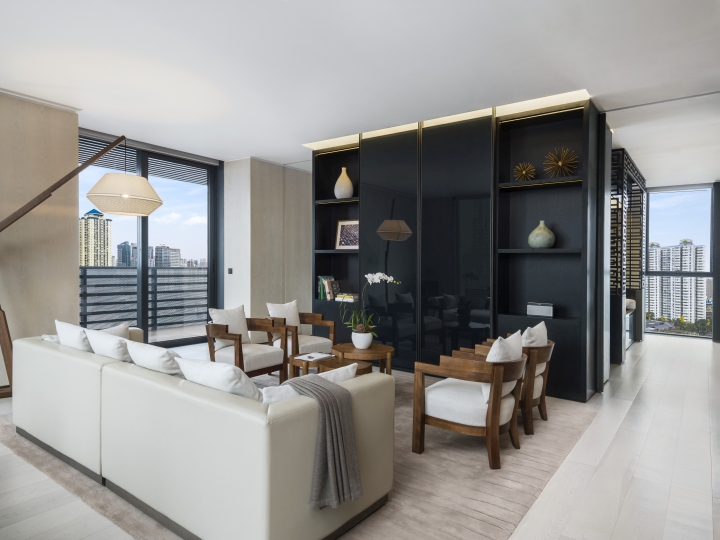
Key to the design concept was for the hotel’s form and materiality to convey outstanding design excellence, with a high degree of comfort and facilities, and a welcoming, well-embedded “local” quality. Katy Ghahremani, Make partner and lead architect on the project, states: “The design was not a linear process. It was an iterative dialogue with Swire Hotels which made the process much more interesting. We could look at the design holistically and this created a really dynamic relationship between the design of the hotel’s external and internal spaces.” The main design trigger was the location of Chengdu itself – with its rich history, celebrated traditions and lush landscape. Brian Williams, Managing Director of Swire Hotels, clarifies: “We want people to come to Chengdu and have a unique hotel experience, one they couldn’t have in Hong Kong or Beijing. The hotel is unique to Chengdu, and unique in Chengdu.”
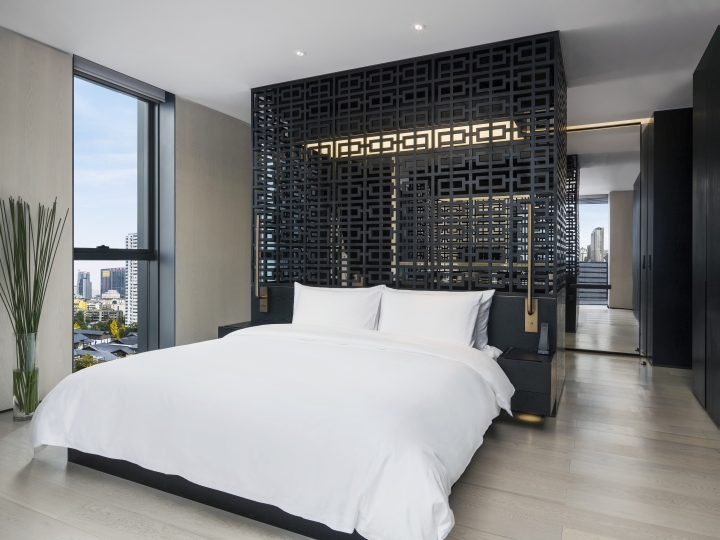
The hotel embraces a typical Siheyuan or ‘courtyard house’ design, with a sequence of courtyard gardens bordered by two L-plan medium rise buildings – one housing 100 hotel rooms, and the other 42 serviced apartments . A beautifully-restored Qing Dynasty heritage building, at the corner of the site, is the anchor and entrance point for the hotel. Guests reach the hotel’s core facilities by travelling through the heritage building’s internal two-storey high courtyard into a reception area, and enter the main hotel by passing down a grand staircase to the landscaped courtyard level. Located here are covered routes to the lift-cores for the hotel rooms and apartments, as well as an array of restaurants, cafes, and other general facilities.
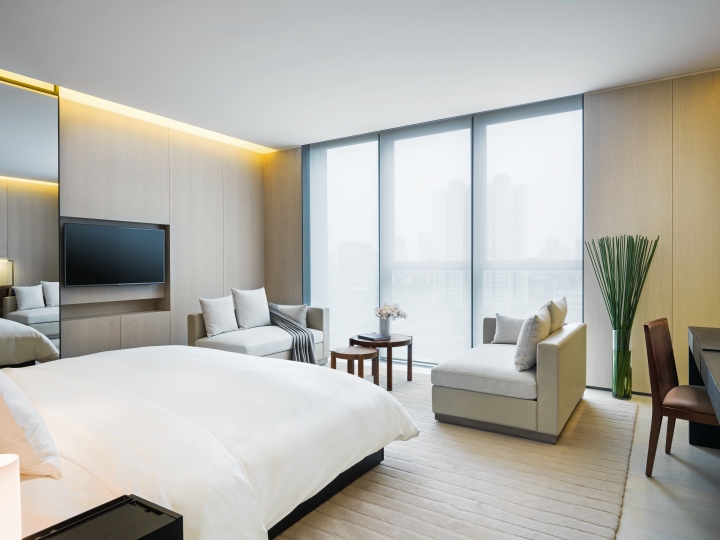
Throughout the design process, Make and Swire Hotels undertook rigorous testing of visual and experiential possibilities relating to surface textures, internal light and shadow effects, and interior views. The city-facing and internal courtyard-facing facades were given entirely different treatments; the former is essentially solid and brick-built, the latter are sheer curtain-walls of subtly fritted glass, which maximise the reflection of light into the courtyard. The city-facing brick facades of the hotel and apartment segments were inspired by the local production of brocade, with façade panels formed of brick and black solid reconstituted stone lintel elements. The three-dimensional woven façade combines modern design with the traditional Chengdu architectural elements of timber, brick and step stones.
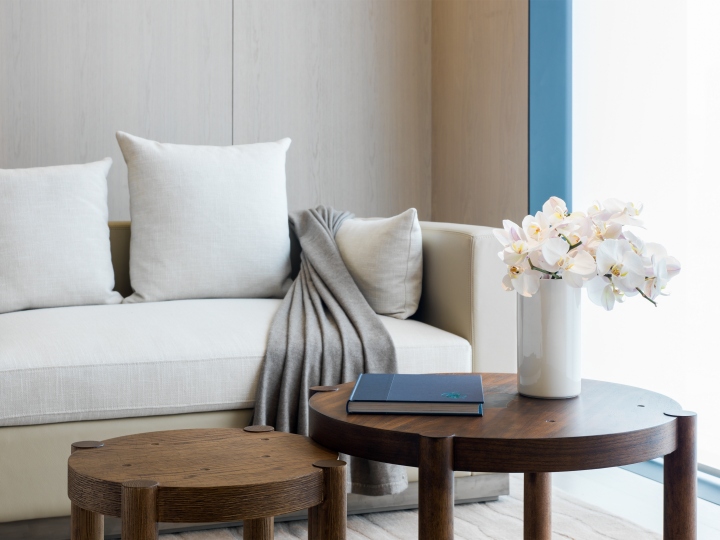
The light-wells embedded in the courtyard layer, organically shaped in plan and stepped in section, are reminiscent of the terraced paddy fields of Sichuan’s steep hillsides when seen from beneath. The terracing effect was echoed even more dramatically in the design of the grand staircase that connects the ground floor reception area to the courtyard. The Temple House forms part of Chengdu’s Daci Temple Cultural and Commercial Complex, a large- scale mixed-use development by Sino-Ocean Land and Swire Properties, in one of the city’s many rapidly developing urban areas. The Temple House is Make’s second project with Swire Hotels, following the successful launch of the Montpellier Chapter Hotel in Cheltenham, United Kingdom in 2010.
Design: Make Architects
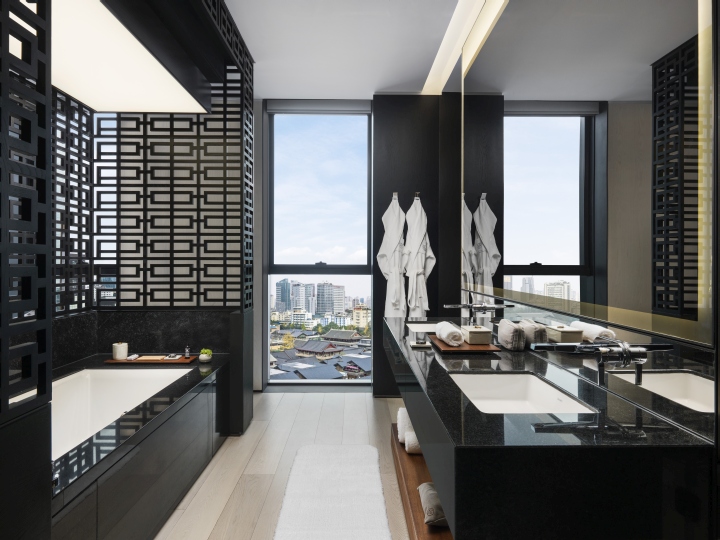
About Make
Make is an award-winning international architectural practice with a reputation for challenging convention and pursuing design excellence. Since we opened our doors in 2004, we’ve worked on over 1,000 projects worldwide in four studios across three continents and have completed 40 buildings, achieved 91 planning consents and realised seven masterplans, across a range of sectors. Our work is inspired by a singular purpose; to design the best buildings, places and spaces in the world.
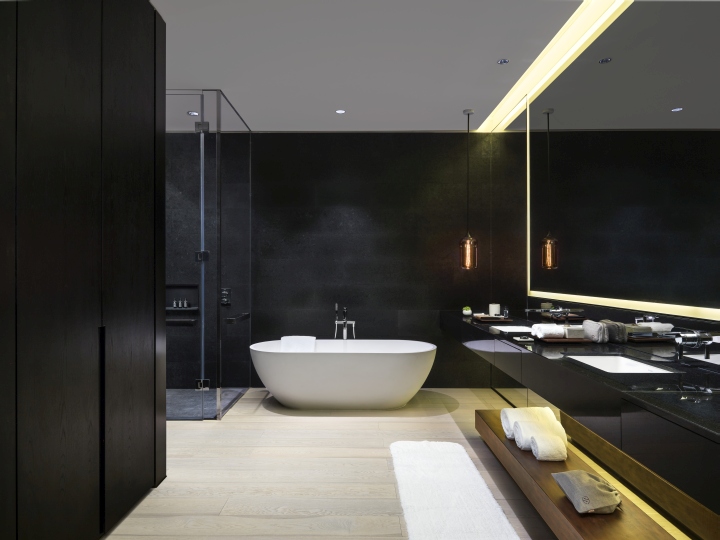
About Swire Hotels and Swire Hotels Concepts
Swire Hotels has been created to manage soulfully individual hotels in Hong Kong, Mainland China, the United Kingdom and the USA, providing a characterful experience for well-travelled individually minded traveller who seek originality, style and personalised service. We create distinctive hotels with a sense of place that break with convention. The company’s first hotel, The Opposite House in Beijing, opened in 2008 and was followed by The Upper House, Hong Kong, and then by EAST, Hong Kong and EAST, Beijing. The Temple House in Chengdu is due to open in Q2 2015 and EAST, Miami in Q4 2015. Swire Hotels has also created a stylish collection of locally inspired hotels in the UK: the first Chapter Hotel, The Montpellier Chapter, opened in Cheltenham in 2010 and was followed by The Magdalen Chapter in Exeter.
A restaurant division was set up in 2013 to manage the company’s stand-alone restaurant operations. Our first restaurant Plat du Jour was opened in November 2013 followed by Public and Ground Public in Quarry Bay and The Continental in Pacific Place which opened in October 2014.
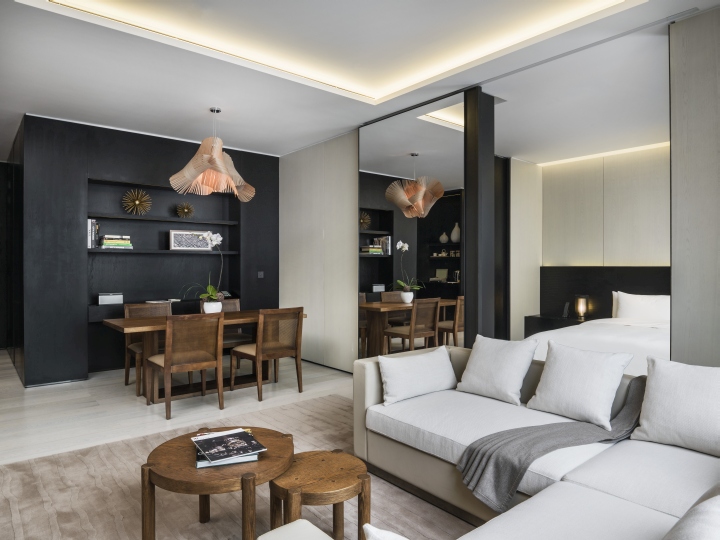
About Sino-Ocean Taikoo Li Chengdu
Sino-Ocean Taikoo Li Chengdu is a 250,000 sqm (approx. 2,710,000 sq ft) mixed-use development located in the heart of Jinjiang District, south of Dacisi Road, east of Shamao Street and close to the popular Chunxi Road shopping area. The project comprises an over 100,000 sqm (over 1,140,000 sq ft) open-plan low-rise retail mall; a 100-room intriguing urban hotel, The Temple House, managed by Swire Hotels; 42 serviced apartments as well as a 47-storey Grade A office tower, Pinnacle One. The complex will be conveniently accessible from the interchange station of Metro Lines 2 and 3. Sino-Ocean Taikoo Li Chengdu embraces the historic Daci Temple and takes pride in the reinvigoration of surrounding heritage buildings. Welcoming lanes, courtyards, plazas with architecture inspired by traditional and modern streets in the east and west make it unique in Chengdu. Sino-Ocean Taikoo Li Chengdu won the Silver Award for Best Urban Regeneration Project in MIPIM Asia Awards 2012.
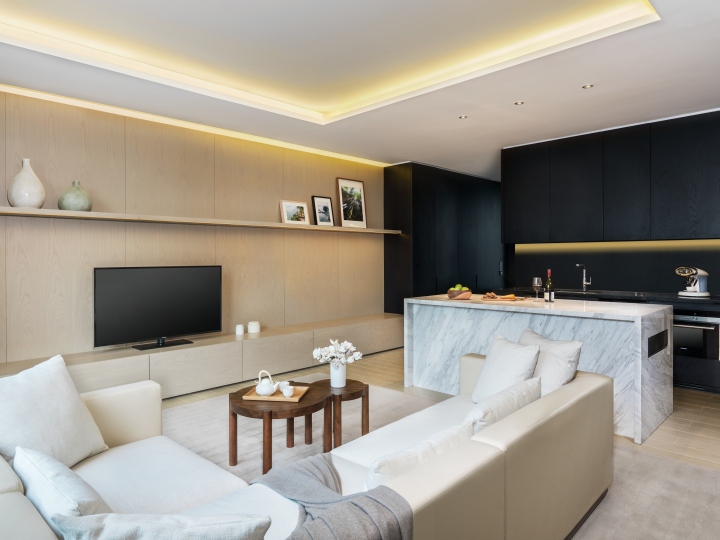
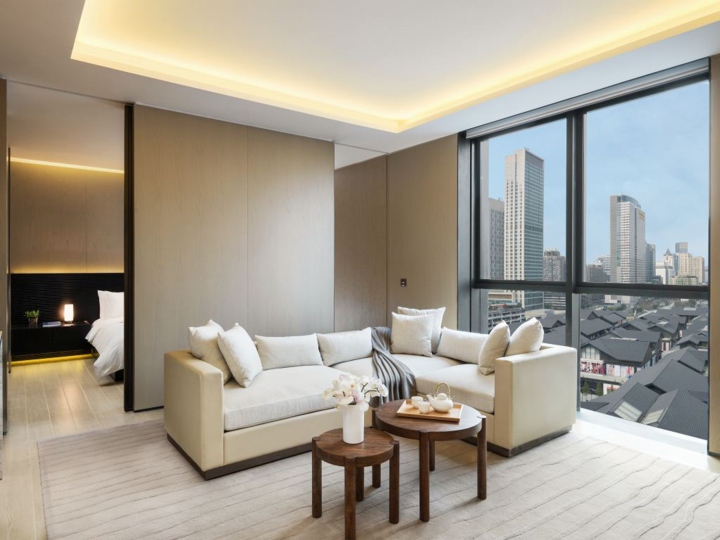
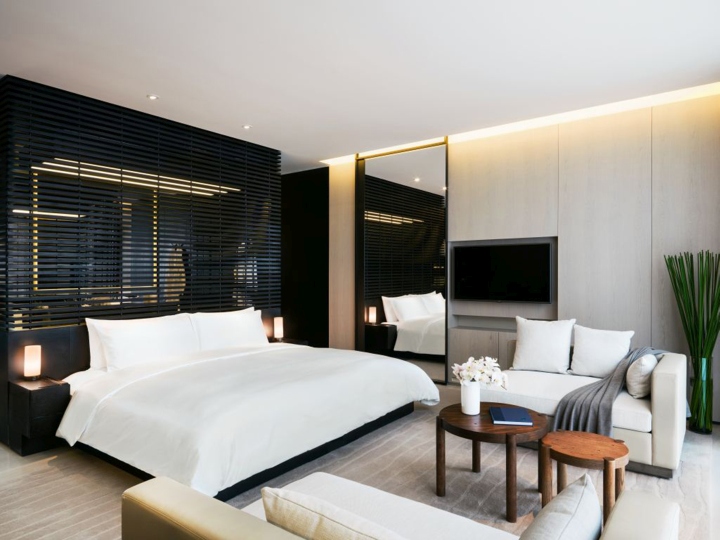
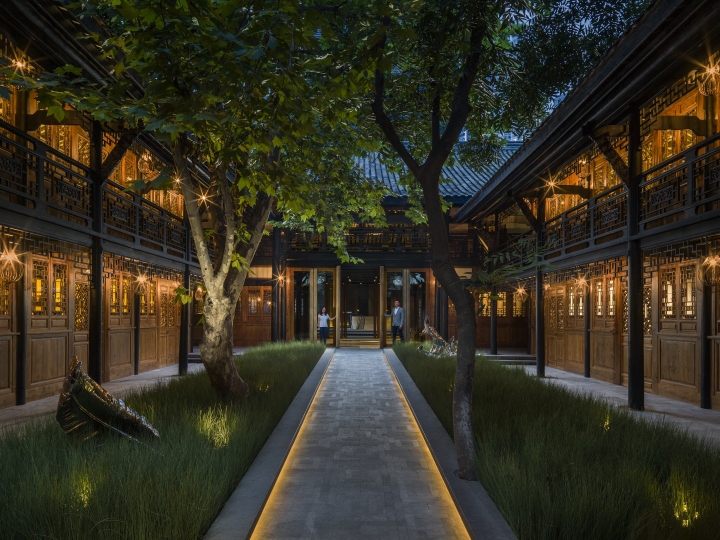
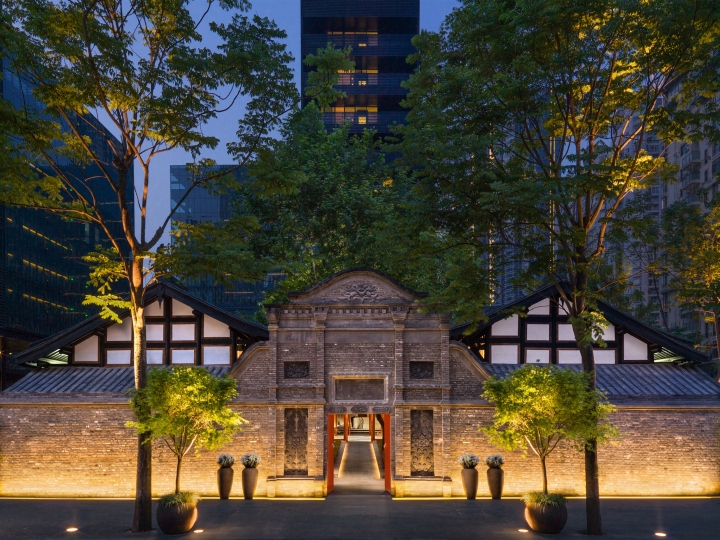
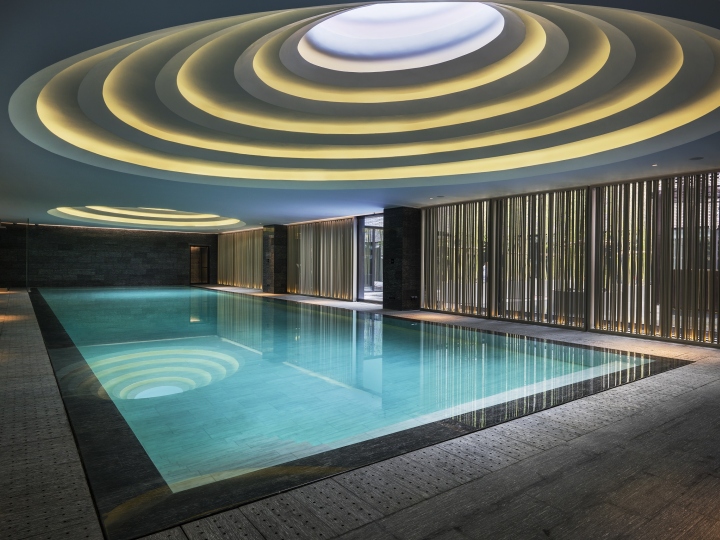
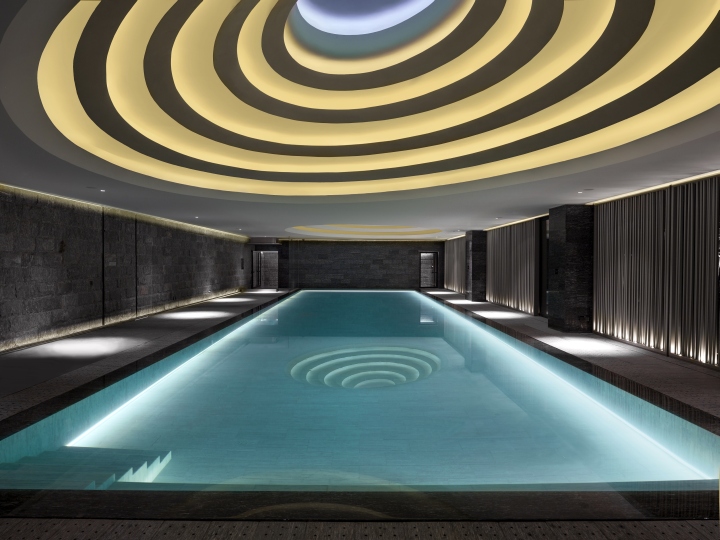
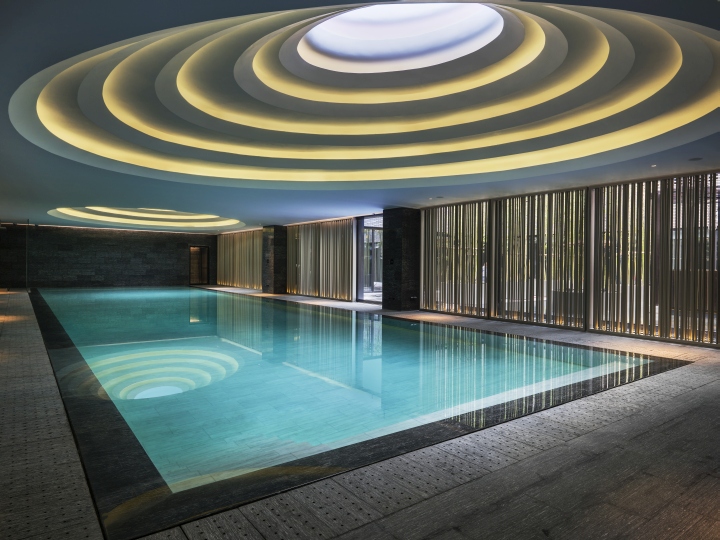
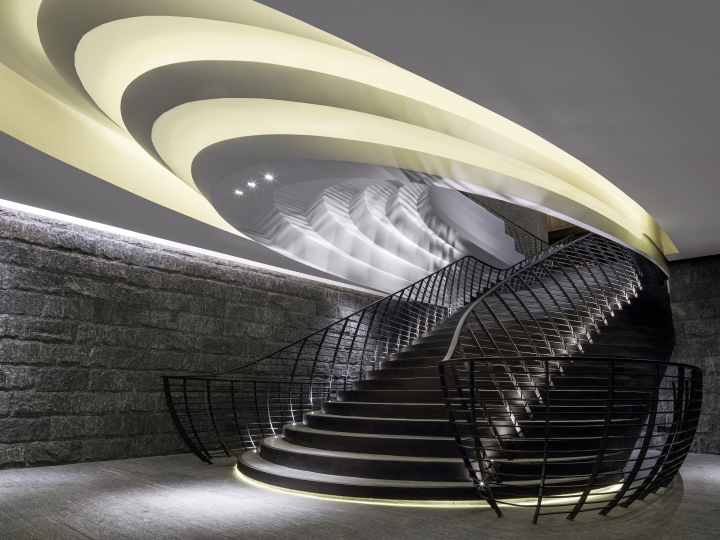
















Add to collection
